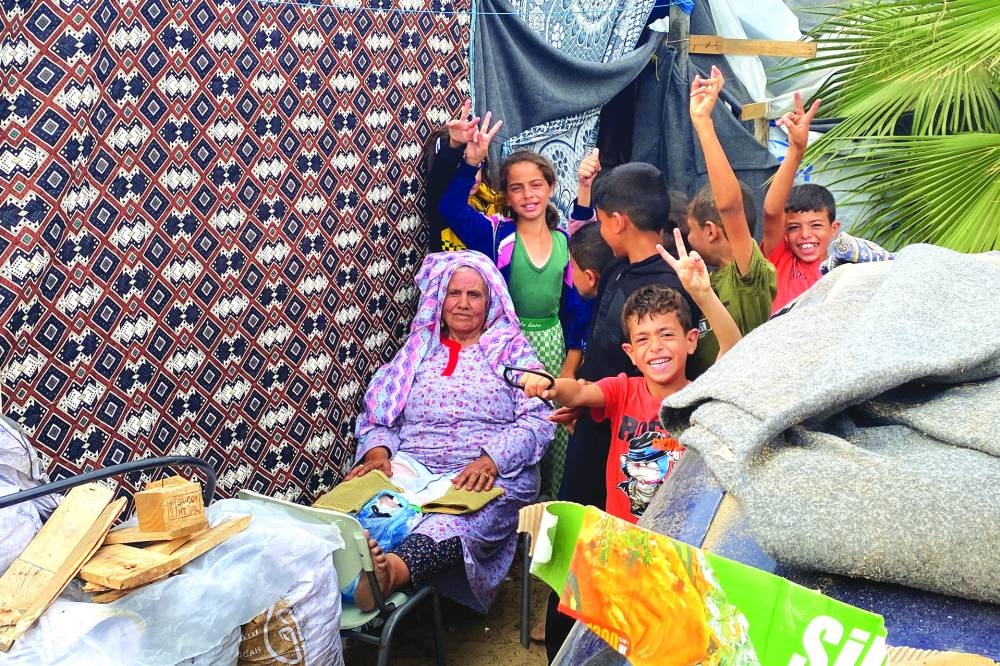Driven from her home by war and sheltering in a tent with no certainty of ever being able to return, elderly Palestinian refugee Abla Awad felt like history was repeating itself in a tragic, never-ending loop.
When she was a girl, she and her family were forced from their village, inside what is now Israel, to Gaza, during the mass displacement of Palestinians in 1948, when Israel was created, an event Palestinians call the “Nakba”, or catastrophe.
Now, she has had to abandon her home all over again, fleeing Jabalia refugee camp in northern Gaza to escape Israeli air strikes, and taking shelter with generations of her family in a tent city in Khan Yunis, in the southern part of the enclave.
“I was five years old and I remember being displaced. Our families carried us along with their bags, and they took us to Gaza. I swear it’s the same as what’s happening today,” said Awad, sitting outside her tent on a patch of sand.
“I was a little girl and now I am reliving the same thing... Ever since I can remember, since I was five years old, I have been witnessing wars,” she said, as her grandchildren ran around her, playfully darting in and out of the tent.
The latest war, between Israel and Hamas, the group that runs Gaza, began when Hamas fighters stormed southern Israel in the first week of October.
In response, Israel imposed a total siege on Gaza and launched an air, sea and ground assault that has killed more than 11,000 people, most of them women and children, according to Gazan officials. An estimated two thirds of the enclave’s 2.3mn residents have been made homeless.
“What did we do to them? Every few years they bring a new Nakba on us,” said Awad, breaking down in tears.
“They displaced us from our home and brought us to Gaza. Now where will they send us? To Sinai? Where will they take us? Let them throw us in the sea, then they can rest without Gaza and the poor Palestinian people,” she said.
The Israeli military has said its current war is against Hamas, not civilians, and that displaced people will be allowed home when it is over, but this has given little reassurance to Palestinians still suffering the consequences of the Nakba.
Most people in Gaza are registered as refugees, after they or their ancestors fled their homes in 1948.
“I can’t take this anymore. I’m so tired of this life. We’re so sick of this, oh God. Have mercy on us. Countries of the world, please look at us, have mercy on us. We’re hungry. We’ve been displaced. How many more years?” said Awad, her voice full of despair.

Palestinian refugee Abla Awad, who witnessed 1948 war’s Nakba and has recently fled from north Gaza to south after Israel’s call, rests as she is
surrounded by her grandchildren, at a tent camp where they take shelter, amid the ongoing conflict, in Khan Yunis in the southern Gaza Strip.
